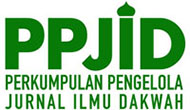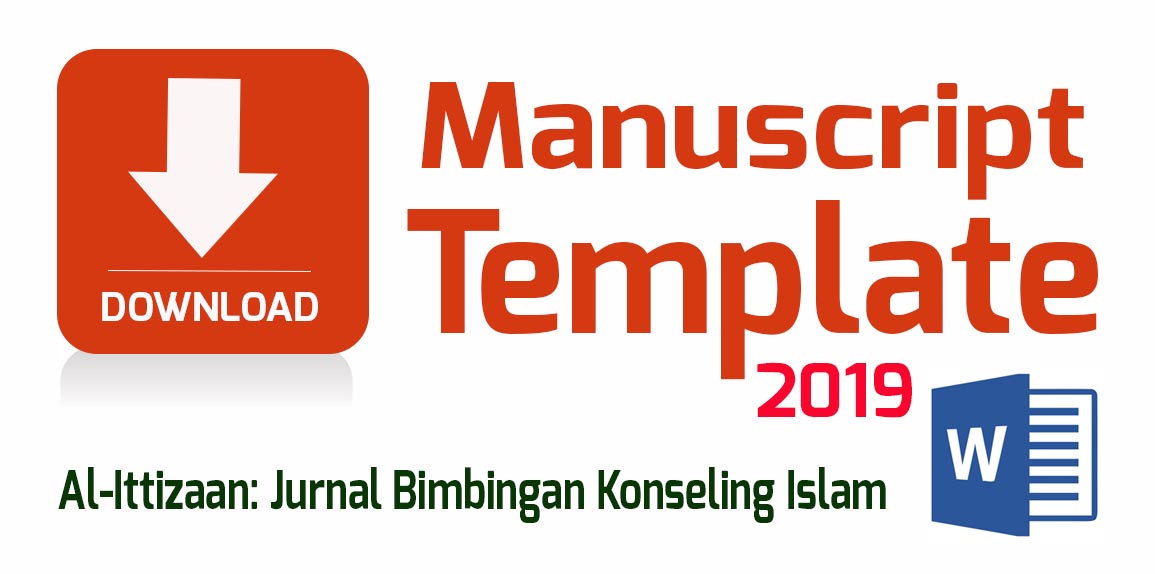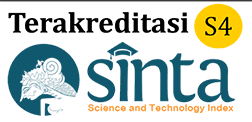Differences in Student Career Adaptability: Education Level and Gender
Abstract
Full Text:
PDFReferences
Brown, Steven D. and Lent, R. W. (2013) Career Development and Counseling, Putting Theory and Research to Work.
Çarkıt, E. et al. (2022) ‘The Relations between Career Adaptability, Career Engagement, and Life Satisfaction’, Psycho-Educational Research Reviews, 11(3), pp. 412–425. doi: 10.52963/perr_biruni_v11.n3.02.
Delle, E. and Searle, B. (2022) ‘Career Adaptability: The Role of Developmental Leadership and Career Optimism’, Journal of Career Development, 49(2), pp. 269–281. doi: 10.1177/0894845320930286.
Dubbelt, L., Demerouti, E. and Rispens, S. (2019) ‘The value of job crafting for work engagement, task performance, and career satisfaction: longitudinal and quasi-experimental evidence’, European Journal of Work and Organizational Psychology. Routledge, 28(3), pp. 300–314. doi: 10.1080/1359432X.2019.1576632.
Haenggli, M. and Hirschi, A. (2020) ‘Career adaptability and career success in the context of a broader career resources framework’, Journal of Vocational Behavior, 119(April). doi: 10.1016/j.jvb.2020.103414.
Hirschi, A. (2009) ‘Career adaptability development in adolescence: Multiple predictors and effect on sense of power and life satisfaction’, Journal of Vocational Behavior, 74(2), pp. 145–155. doi: 10.1016/j.jvb.2009.01.002.
Hirschi, A., Herrmann, A. and Keller, A. C. (2015) ‘Career adaptivity, adaptability, and adapting: A conceptual and empirical investigation’, Journal of vocational behavior. Elsevier, 87, pp. 1–10.
Hirschi, A. and Valero, D. (2015) ‘Career adaptability profiles and their relationship to adaptivity and adapting’, Journal of Vocational Behavior, 88. doi: 10.1016/j.jvb.2015.03.010.
Hou, Z.-J. et al. (2012) ‘Career adapt-abilities scale—China form: Construction and initial validation’, Journal of Vocational Behavior. Elsevier, 80(3), pp. 686–691.
Husna, H. A. and Mayangsari, M. D. (2017) ‘Gambaran adaptabilitas karir pada siswa dengan gangguan low vision’, Ecopsy. Lambung Mangkurat University, 4(2), pp. 85–95.
Koen, J. et al. (2010) ‘Job-search strategies and reemployment quality. The impact of career adaptability’, Journal of Vocational Behavior, 77(1), pp. 126–139. doi: 10.1016/j.jvb.2010.02.004.
Lakshmi, P. A. V. and Sonata, S. (2021) ‘Benefits of Career Adaptability and Job Crafting on Career Success of Indonesian Workers during Pandemic/ Manfaat Career Adaptability dan Job Crafting pada Kesuksesan Karir Pekerja Indonesia dalam Masa Pandemi’, Psikoislamika : Jurnal Psikologi dan Psikologi Islam, 18(1), pp. 145–162. doi: 10.18860/psikoislamika.v18i1.11796.
Di Maggio, I. et al. (2020) ‘The Role of Career Adaptability, the Tendency to Consider Systemic Challenges to Attain a Sustainable Development, and Hope to Improve Investments in Higher Education’, Frontiers in Psychology, 11(August), pp. 1–10. doi: 10.3389/fpsyg.2020.01926.
Mardiyati, B. D. and Yuniawati, R. (2015) ‘Perbedaan adaptabilitas karir ditinjau dari jenis sekolah (SMA dan SMK)’. Universitas Ahmad Dahlan.
Maree, K. (2017) ‘Psychology of career adaptability, employability and resilience’, Psychology of Career Adaptability, Employability and Resilience, (December), pp. 1–453. doi: 10.1007/978-3-319-66954-0.
Mondo, M. et al. (2021) ‘Measuring career adaptability in a sample of italian university students: Psychometric properties and relations with the age, gender, and stem/no stem courses’, Social Sciences, 10(10), pp. 1–20. doi: 10.3390/socsci10100372.
Oktaviani, O. (2021) ‘Peran Wanita Karir Dalam Pemenuhan Nafkah Keluarga Dalam Masyarakat Bugis Di Kota Parepare (Analisis Gender Dan Fiqh Sosial)’. IAIN Parepare.
Opier, N. M. (2020) ‘Pengaruh Locus Of Control dan peran gender terhadap pengambilan keputusan karir siswa kelas XI dan XII SMAS Diponegoro Tumpang’. Universitas Islam Negeri Maulana Malik Ibrahim.
Panjaitan, Y. J. and Sahrah, A. (2023) ‘Adaptasi Career Adapt-Abilities – Short Form Ke Versi Indonesia’, 7(2), pp. 1421–1431. doi: 10.58258/jisip.v7i2.4935/http.
Rahmawati, A. R., Yusmansyah, Y. and Mayasari, S. (2020) ‘Pengaruh layanan bimbingan kelompok terhadap kematangan pilihan parir’, ALIBKIN jurnal Bimbingan Konseling, 8(2), pp. 1–14. Available at: http://download.garuda.kemdikbud.go.id/article.php?article=1513046&val=1571&title=Pengaruh Layanan Bimbingan Kelompok Terhadap Kematangan Pilihan Karir.
Rasyidi, S. N. A. et al. (2021) ‘The Career adaptability among Young Adulthood : A Systematic Literature Review’, ProGCouns: Journal of Professionals in Guidance and Counseling, 2(1), pp. 14–19. doi: 10.21831/progcouns.v2i1.39472.
Rosalin, S. and Agustina, R. (2020) ‘Pengaruh Gender dan Perbedaan Jurusan terhadap Kematangan Karir Mahasiswa Program Diploma Tiga Sekretaris Pendidikan Vokasi’, JKI (Jurnal Konseling Indonesia), 6(1), pp. 21–27.
Savickas, M. L. et al. (2009) ‘Life designing: A paradigm for career construction in the 21st century’, Journal of Vocational Behavior. Elsevier Inc., 75(3), pp. 239–250. doi: 10.1016/j.jvb.2009.04.004.
Savickas, M. L. (2013) ‘Career construction theory and practice’, Career development and counseling: Putting theory and research to work. Wiley, 2, pp. 144–180.
Sisca and William Gunawan (2015) ‘Gambaran Adaptabilitas Karier Remaja’, Jurnal Psikologi UIN Sultan Syarif Kasim Riau, 11(Desember), pp. 111–119.
Su, R. and Rounds, J. (2015) ‘All STEM fields are not created equal: People and things interests explain gender disparities across STEM fields’, Frontiers in psychology. Frontiers Media SA, 6, p. 189.
Sulistiani, W. et al. (2021) ‘A Content Analysis of Career Adaptability Among Marine Cadet’, Journal of Educational, Health and Community Psychology, 10(2), p. 249. doi: 10.12928/jehcp.v10i2.19967.
Susanto, A. F. (2021) ‘KONTRIBUSI EMPLOYABILITY SKILLS TERHADAP CAREER ADAPTABILITY PADA MAHASISWA TINGKAT AKHIR UNIVERSITAS HASANUDDIN’. Universitas Hasanuddin.
Swastika, D. R. and Sudjani (2023) ‘The Career Adaptability Potential of Vocational High School Students from a Digital Literacy Perspective’, Jurnal Pensil: Pendidikan Teknik Sipil, 12, pp. 22–32. doi: 10.21009/jpensil.v12i1.30681.
Ulfah, F. and Akmal, S. Z. (2019) ‘Peran kepribadian proaktif terhadap adaptabilitas karier pada mahasiswa tingkat akhir’, Intuisi: Jurnal Psikologi Ilmiah, 11(1), pp. 45–54.
Yuca, V., Suherman, U. and Budiamin, A. (2023) ‘Differences of adolescent career maturity in indonesia : a gender and job aspirations based approach’, 9(1), pp. 154–163.
Zahra, A. (2018) ‘Hubungan antara dukungan orangtua dengan adaptabilitas karir pada siswa’. UIN Sunan Ampel Surabaya.
Zakaria, Z. et al. (2023) ‘Menyiapkan Siswa untuk Karir Masa Depan Melalui Pendidikan Berbasis Teknologi: Meninjau Peran Penting Kecerdasan Buatan’, Journal on Education, 5(4), pp. 14141–14155.
Zhao, L., Li, W. and Zhang, H. (2022) ‘Career Adaptability as a Strategy to Improve Sustainable Employment: A Proactive Personality Perspective’, Sustainability (Switzerland), 14(19), pp. 1–20. doi: 10.3390/su141912889.
DOI: http://dx.doi.org/10.24014/ittizaan.v6i2.24297
Refbacks
- There are currently no refbacks.
Copyright (c) 2024 Al-Ittizaan: Jurnal Bimbingan Konseling Islam

This work is licensed under a Creative Commons Attribution 4.0 International License.
 Indexed By:
Indexed By:
Al-Ittizaan Journal is licensed under a Creative Commons Attribution 4.0 International License.








.png)


